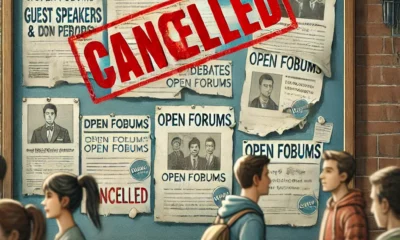
After more than four decades in law enforcement—most of it spent serving in small-town departments—Chief Roger Squiers is preparing to retire, leaving behind a legacy shaped by compassion, community service, and a steady hand committed to doing what’s right, even when it meant breaking from tradition.
It all started with a neighbor’s lawn.
As a teenager growing up in rural Michigan, Squiers was sent by his parents to mow the lawn of Lena Gutches, an elderly widow who lived nearby. “One day she told me, ‘You’re such a nice young man—you’d make a good police officer,’” Squiers recalls with a smile. “And that planted the seed.” A career-day visit with local police further sparked his interest, and by the age of 19, he was in the police academy—too young to even buy his own bullets.
Since then, Chief Squiers has dedicated 46 years to policing, most of it in smaller communities. “I’ve always loved working in small towns,” he says. “There’s more freedom to serve people in real, meaningful ways. You’re not just enforcing laws—you’re helping neighbors.”
That philosophy shaped his leadership style in Whitehall, where he’s served as Chief for over a decade. Known for quietly modernizing operations and policies, Squiers led with a pragmatic approach that always prioritized the wellbeing of his officers and the people they serve. “When I got here, I didn’t just start changing things,” he explains. “I spent the first year learning how we did things—and then I started making it better.”
From eliminating unnecessary trips to Muskegon to automating case processing, Squiers consistently found ways to make life easier for his team so they could focus on what mattered most: helping the community.
And helping, for Chief Squiers, meant more than just law enforcement. Whether it was fixing a thermostat in the middle of the night for an elderly resident or comforting someone in distress, Squiers modeled a version of policing that’s built on empathy and service.
That spirit, he says, thrives in places like Whitehall.
“In big departments, your job is defined by the structure. In small towns, you can bend a little to meet people where they are. That’s what builds trust. That’s why people in this community will speak up for us when someone takes a shot online—they know who we are. They see what we do.”
It’s not just the residents who earned his respect. Squiers beams when talking about his officers and their everyday acts of kindness. “They go above and beyond—and they do it quietly. They care. And I’m proud of that.”
His career journey took him from part-time work in Ovid to full-time roles in Belding, Owosso, and finally Whitehall. Along the way, he always resisted the status quo, even if it meant drawing new lines—literally. He tells a story about redesigning daily log forms at Owosso, which eventually became the department standard, despite early pushback. “I’ve never been okay with ‘that’s just how we’ve always done it.’”
Squiers’ leadership extended beyond city limits. He served nearly a decade as chair of the Muskegon County COPS Board, and actively participated in state and regional law enforcement associations, ensuring small departments like Whitehall had a seat at the table.
As for his legacy?
“I hope I’m remembered as someone who cared,” he says. “Not just about enforcing the law, but about people—officers and citizens alike. I wanted to make this a place where community came first.”
He believes his successor, Lt. Brandon, will carry that torch. “We’ve worked closely together for years. He’s got a different style, and that’s good. He should be himself. But he cares, and that’s what matters most.”
Though officially retiring June 1, Squiers won’t be disappearing. He’s already volunteering his time to help with an accreditation project for the department, and you’ll likely still see him at Montague soccer games or local track meets—his signature voice calling names from the sidelines.
And in retirement?
Fishing, gardening, golfing, camping—and time with family. “I never liked fishing until I came here,” he laughs. “Then I caught my first salmon, and that changed everything.”
Still, don’t expect him to stay quiet. “I don’t like having others make decisions that impact me. I’ll stay involved. That’s just how I’m wired.”
From the lawn of a neighbor to the streets of Whitehall, Chief Squiers has spent a lifetime showing that policing can be about people—not power. In the small-town communities he’s served, that made all the difference.
To honor his years of service and mark this next chapter, the City of Whitehall will host an official Change of Command Ceremony on May 29 at the Whitehall Police Department, where Brandon Mahoney will formally take on the role of Chief of Police. The public is warmly invited to attend and show their appreciation for Chief Squiers’ legacy—and to welcome the city’s next generation of leadership.
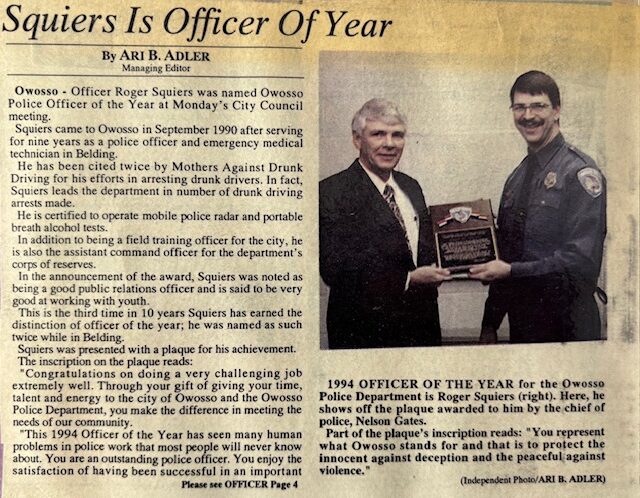
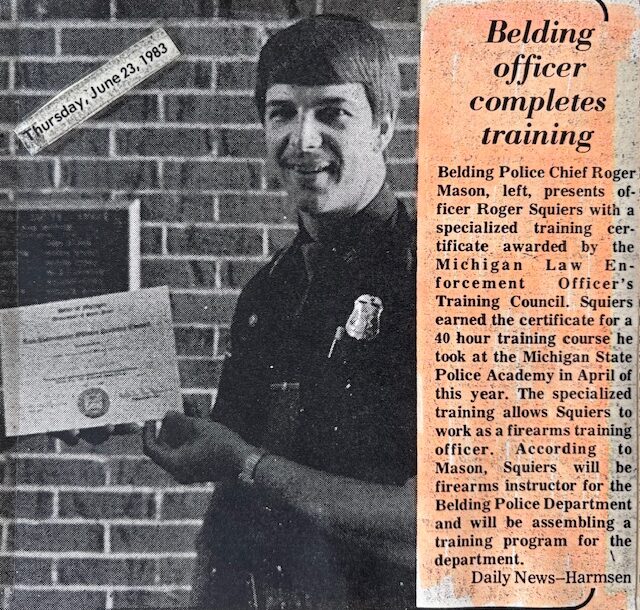
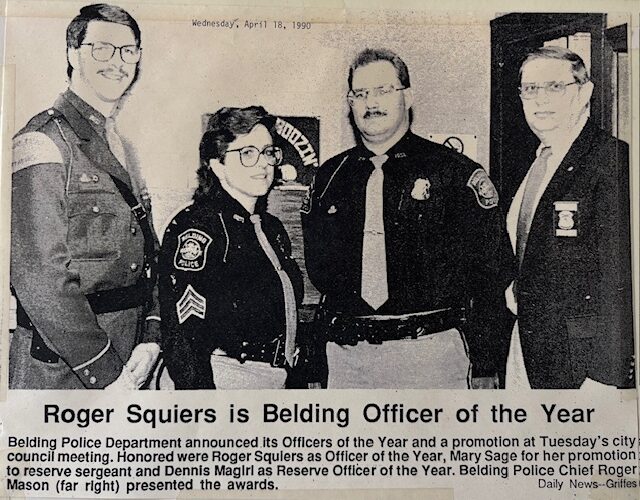

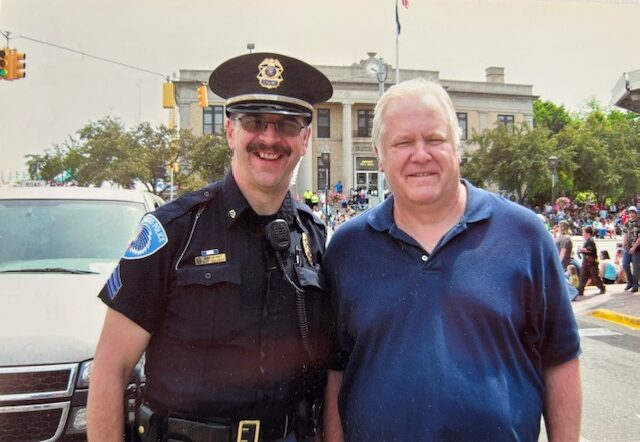
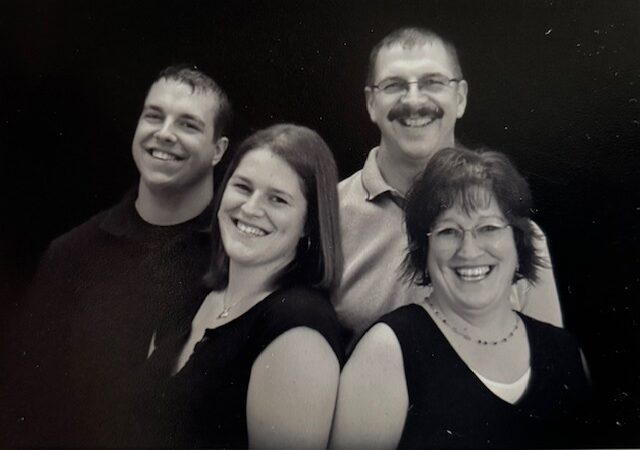






https://www.facebook.com/WhitehallPolice
Kara Raeth is the DMM Service Lead at CatchMark Technologies, bringing over 15 years of experience in web development, customer service, and project management. She joined the company in 2019 as a Web Developer and has since expanded her role to include office management, accounts receivable and payable, and project management. Kara proudly served in the U.S. Army, where she specialized in signal and communication intelligence—developing a strong foundation in secure communication and technical systems. Her combined military background and digital expertise make her a vital asset to CatchMark’s digital marketing and media operations.
Must See
-


Opinion
/ 18 hours agoThe Decline of Free Speech in Educational Institutions: A Threat to Open Discourse
The university auditorium was packed but free speech was tabled. A guest speaker, invited...
By Brent Raeth -


Community
/ 24 hours agoCity of Whitehall Council Meeting Recap – June 10, 2025
The City of Whitehall Council met on June 10, 2025, to discuss a range...
By Kara Raeth -


Community
/ 2 days agoSummer Kick-Off Party to Support Whitehall Athletics
Get ready for a night of family fun, games, and community spirit—the 2nd annual...
By Amy Yonkman
